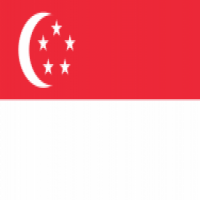Summary:
A Singapore institute of higher learning has developed a cost-effective formulation to include okara in feed for abalone. More than 30,000 kg of okara is generated from soya milk and tofu production in Singapore alone and discarded as waste. The formulation can potentially be adapted and customised for other aquatic species. The technology provider is interested in licensing or commercial partnerships with technical assistance with MNEs/SMEs of all sizes.
Description:
Due to the high amount of insoluble dietary fibre and a unique, poignant smell, okara is often discarded as a waste product. A small portion of okara is used in animal feed, but there is also potential for okara as an alterative protein source for aquatic feed.
A Singapore institute of higher learning has developed a cost-effective feed for high-value abalone, a commonly cultured species of mollusc. Okara based abalone feed is currently not available in the market. A small-scale field trial found that okara can completely replace fish meal in the feed and provide better growth in terms of length (15-20%) and weight (15-20%) for abalone compared to commercial feed containing fish meal. The okara-based feed costs approximately 30% less than commercial feed used in the industry.
Okara-based feed for abalone also showed a change in the shell colour pigmentation which resulted in a beautiful purple colouration of the shell. Good shell coloration is key to increased selling potential of mollusc.
Okara can also potentially be included in feed for other aquatic species such as shrimp and fish.
The Singapore institute of higher learning is seeking partners (MNEs or SMEs of all sizes) to either license the technology or be a commercial partner with technical assistance rendered by the Singapore institute.
Type (e.g. company, R&D institution…), field of industry and Role of Partner Sought:
The Singapore institute of higher learning is interested in the following types of partnerships with MNEs or SMEs of all sizes, particularly aquaculture farms, aquatic feed manufacturers and aquatic feed ingredient manufacturers:
i) Licensing agreement - The partner could license the technology for further development and introduce it to its customers.
ii) Commercial agreement with technical assistance - The partner could utilise the technology with technical support from the technology provider.
Stage of Development:
Project already started
IPR Status:
Secret Know-how
External code:
TOSG20210126001








